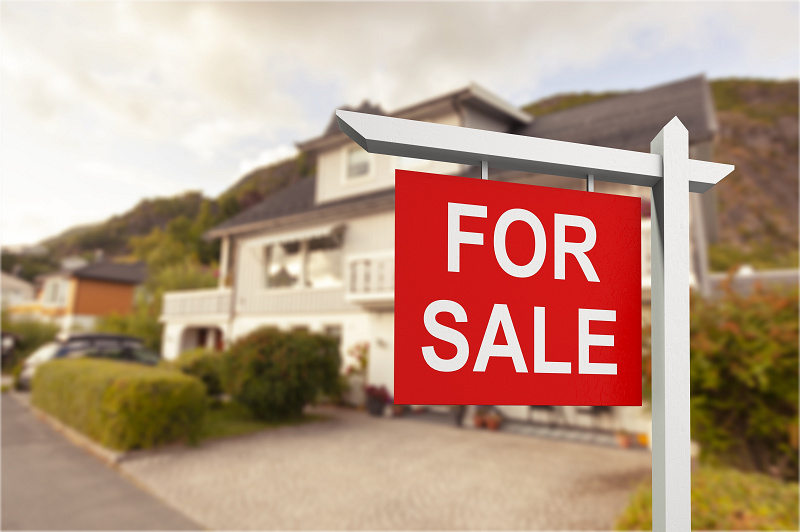
Buying a new home is one of the largest, most significant investments you make throughout your lifetime. There are so many factors to consider when purchasing a property but selling wisely requires the same amount of caution and deliberation.
Homebuyers can face unforeseen circumstances that might encourage a sale sooner than initially expected. Job relocation, buyer’s remorse, shifts in family needs or finances, a health emergency, and the sudden onslaught of a seller’s market can all trigger someone to sell soon after buying.
For as many reasons as there are to sell quickly, there are just as many to hold onto the investment longer. You need to be wary of a capital gains tax, losing money in the sale, and potential financial penalties mortgage lenders often impose on prepayment.
So, how do you know how long you should wait before selling your house? Let’s examine the details of all influencing factors in this crucial decision to help you find that answer.
How Soon Can You Sell a House After Buying It?
If you want to sell a house fast in Milwaukee, that’s fine. You can technically sell a property at any time, but to sell without losing money takes at least some time and a lot of mathematics.
Getting this right lies within the home equity you acquire during your period of home ownership and how that compares to the current property value, sale price, selling costs, mortgage prepayment penalty, taxes, and moving expenses.
Home equity is the current market value of the property, subtracting the amount of the mortgage balance remaining. The more time you’ve spent paying off that mortgage, the higher your equity is, which is why traditional thinking tells us to wait at least five years before selling.
You can still successfully sell before then, and there’s a two-year rule that allows you to bar a large portion of the sales profits from your taxes.
Even before that two-year threshold, you can sell without losing money. If the housing market determines that the value of your home is high enough that the home sale would cover the agent’s commission and offset other closing costs, and if you have enough money saved to cover the down payment for your new property, it can work out.
It’s important to remember that closing costs add an average of 10% to the purchase price. So even with seller contribution, the expense accompanying title transfer fees, prorated property taxes, escrow fees, inspections, and other necessary costs is hefty and unavoidable.
You also need to consider the interest rate on the new mortgage because that will impact your monthly mortgage payments, which fluctuate with the housing market. There are a lot of moving parts that have to come together with the proper timing to make a quick turnover successful to either break even or make a profit.
Can You Generate Home Equity Quickly?
Building home equity comes from lowering your mortgage debt against the property and increasing the property value.
During the initial sale, dropping a large down payment starts you off with less debt. But, if you weren’t intending on selling quickly in the beginning, maybe you didn’t take advantage of that option. Here are some tips for first time home sellers:
You can make additional payments toward the principal portion of your mortgage each month. Standard mortgage payments allot a specific amount to both the principal and interest portions of the loan, but you can make extra principal payments to gain more equity.
Speak with your loan officer to determine how to make these additional payments and clarify that they are going toward the principal portion of the loan. You can potentially increase to biweekly payments rather than the standard monthly, and you can use extra funds in between regular payments, like bonus checks or tax returns.
You can also look into refinancing your mortgage with the same or a different lender into a shorter-term loan that requires higher payments to decrease your debt faster.
Aside from putting more money directly toward the mortgage, you can make other investments to gain equity.
Renovation projects, whether interior, exterior, or landscaping, can add significant value to a property. However, not every aspect of a remodel gives a return on investment, so it’s important to research what will cause a tangible increase in home value.
A reputable realtor can help shed light on the areas of your property that will benefit your investment. Consulting with a local agent will give you accurate insight into what’s adding home value in your specific housing market.
The most common projects that equate to an increase in home value are garage doors, windows, roofs, siding, and large mechanical replacements (like a furnace or air conditioning). Second to those are minor kitchen and bathroom renovations.
Need To Sell Your House Fast?
We make it simple to sell your house in as-is condition.
Just fill out the form below or give us a call at: (414) 488-0082 to get your free, no-obligation cash offer!
Can You Sell Your Home Within a Year of Buying It?
You can sell your home whenever you want, but selling within six months or a year almost guarantees you’ll lose money.
When you live in a home as your primary residence for at least two years, you earn exemption from the capital gains tax that comes with a profit in the home sale. Therefore, it’s generally in your best financial interest to wait until the two-year rule applies to you to sell a home.
If you can sell a home less than a year after buying it and turn a profit, then that qualifies you for a short-term capital gains tax that goes off of your overall tax bracket standing as income.
A tax professional can clarify whether you fall into the extraordinary circumstances the IRS has set that exempt you from capital gains tax before the two-year rule, like death and natural disaster.
If you’re selling within one year of buying it, you’ll need to prepare for potential buyers to have reservations about the property since they can access the sales records. People look at the amount of time the previous owner held the property as well as the sales and property tax history of the home itself.
Your real estate agent should be able to provide counsel as to your explanation to potential cash home buyers in Waukesha about the quick resale.
A house flipper, someone who renovates an investment property over a short period to flip for profit, needs to consider every single cost. From list price to potential valuation post-remodel and all of the carrying and closing costs in between, everything needs to be accounted for to gain the most equity in the shortest possible time.
The phrase “buying the worst house on the best block” comes from the fact that hot markets with high home prices offer the strongest opportunity to acquire significant equity.
How Long Should You Wait Before Selling Your House?
With explicit benefits to following the two-year rule, it’s financially recommended to own a home for at least that length of time before selling. More old-school thinking tells us to wait at least five years before selling to build a healthy amount of equity.
When it comes down to it, you’re the only one who knows your situation and what you can and can’t afford. So, at the very least, you should ensure that you’ll break even on the total sale and cost by carefully calculating your equity and expenses.
What You Need to Know if You’re Selling Your House Soon After Buying It
Always consult with a real estate agent to create a plan of action so that you don’t lose money when selling your house within six months to one year of buying it.
The law states that you must pay capital gains tax if your house’s value is higher since your purchase. Extenuating circumstances might exempt you from this, but they are extreme and specific, so remember to discuss your situation with a tax professional.
Remember that beyond taxes, realtor, and other closing fees limit any potential profit you’ll make from a quick sale. The less equity you have in the property, the lower your potential profit is. You must strategize ways to reduce expenses and boost profit to break even.
Determine your home’s value, find a realtor with enough experience to finesse the closing costs as much as possible, and do the math to determine your potential tax bill. The largest financial penalties you might face selling soon after buying are short-term capital gains taxes and mortgage pre-payment fines from your lender.

Buy and Sell Wisely
Whether selling soon after buying was a part of your initial plan or not, there are smart ways to approach the transaction to minimize the financial burden. Everything about investing in property comes down to equity and value.
Once it becomes clear that you have to sell quickly, take action to increase your equity as aggressively as possible through refinancing your mortgage to a shorter term or making additional payments to the principal balance.
We buy houses Wisconsin homeowners want to sell quickly. You can sell your house without an agent and forego the related fees. So, don’t hesitate to contact us today!
